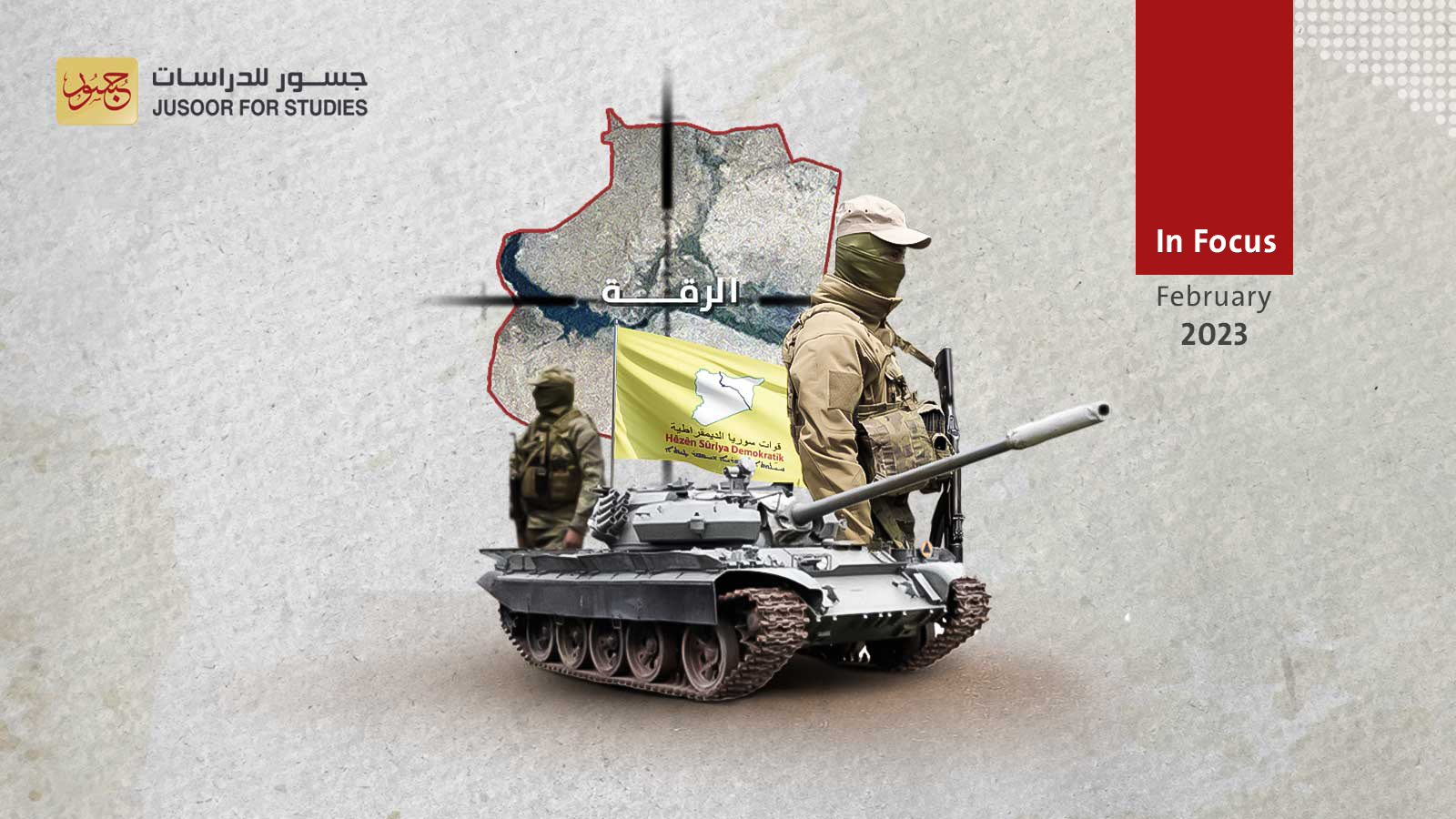SDF Lunches wide-scale security operation against opponents in Raqqa
In January 25, 2023, the Syrian Democratic Forces (SDF) launched a wide-scale security operation. It covered the governorate of Raqqa as a whole in addition to the Serrin and its surrounding area eastern Aleppo. The operation is supported and covered by the US-led International coalition forces.
Officially, this operation aim s at chasing and arresting ISIS cells in those areas, by destroying their potential hideouts and dismantling recruitment and polarization networks. However, the campaign, in practice, was also used to confiscate weapons spread among civilians and arrest every gun owner as well. Moreover, arresting people who oppose the policies of the SDF and the Autonomous Administration is an another aim of such an operation.
In order to launch an operation as such, the SDF obviously took advantage of the attack launched against its security center located in the city of Raqqa on December 26, 2022, which resulted in the killing of 6 members affiliated with it and the Internal Security Forces (Asayish) of the Autonomous Administration.
Under this operation, SDF imposed a curfew and partial lockdown and carried out raids targeting homes, which led to the arrest of more than 300 people on charges of affiliating with ISIS, given that many lootings and thefts of civilian property occurred during the inspections in several areas.
Accordingly, it can be said: This operation has multiple goals; considering its size, geographical scope and the time, during which it was announced.
In terms of timing, the announcement of the operation came 48 hours after the protests that erupted in the city of Raqqa to demand accountability for SDF members involved in the killing of a teacher and her 8-year-old daughter. This protest wave was the largest in the city since the SDF took control of it in 2017; as not only hundreds of people from the governorate participated in it and took to the streets, but also several notables of the governorate interacted, namely: Huwaidi Shalash al-Huwaidi, the leader (Sheikh) of the Al-Afadila tribe, the largest of the governorate's tribes. This indicated a great possibility for the expansion of the scope and size of the protests.
In other words, the operation was used as a cover for the security measures initiated by SDF to control and end the protests by arresting the organizers and participants and preventing their recurrence by declaring intermittent curfews in all areas of the governorate.
Considering its geographic scope, Raqqa governorate has been facing mounting security problems for more than a year. For example, the spread of drugs, robberies, kidnappings for the purpose of ransom, killing, and the activity of ISIS cells came as a result of the decline in the security presence of the SDF, which the latter claimed that it is due to the Turkish military pressure. However, it seems that exacerbating the problems is more connected to the SDF's disregard for the involvement of its security and military leaders in these problems, especially the judicial apparatus of the Autonomous Administration. This, in fact, came as a result of poor performance of SDF cadres and the widespread corruption and clientelism amongst them .
Consequently, the security operation was used to display the strength and security presence of the SDF in the Raqqa governorate, and to confirm the continuation of its absolute control over its military and security formations. Therefore, it seems that SDF took advantage of the operation to cover up arrest campaigns targeting former leaders and members of the armed Syrian opposition factions, in light of the former’s fears of any possibility of dealing with such factions as part of the ongoing American move to give a greater role to the Arab component in managing military and civil affairs in various areas of SDF control and in Raqqa governorate in particular.
In terms of the scale of the military operation in Raqqa, it is considered the largest one compared to all operations launched by SDF in its areas of control during the previous years, which were limited to specific areas in the Syrian eastern governorates. Despite that fact, however, this operation covered all areas and sub-districts, of which SDF controls in Raqqa governorate and parts of the eastern countryside of Aleppo.
It seems that SDF wants to project its power and emphasize the importance of its role in counter-terrorism operations led by the international coalition forces in Syria, to utilise that in confronting the Turkish escalation and supporting its position in the ongoing negotiations between the Democratic Union Party (PYD) and the Syrian regime, as the latter calls for the dismantling of the SDF and the Autonomous Administration project.
All in all, these security operations launched constantly but irregularly by the SDF reflect the security method it prefers in managing and ensuring its continued control over the regions of northeastern Syria. This also shows the extent of the use and exploitation of its partnership with the international coalition forces to achieve its own interests and confront its international and local opponents.








